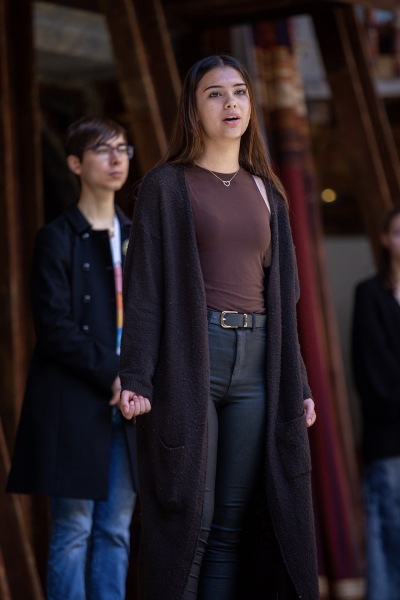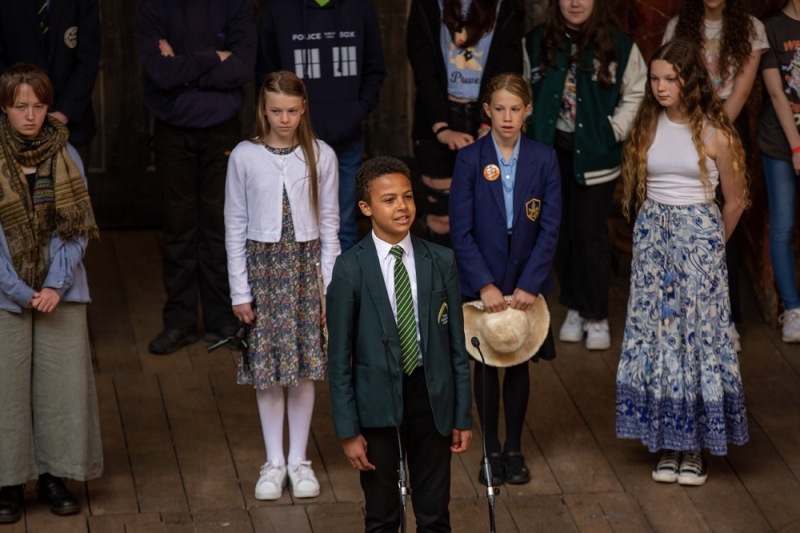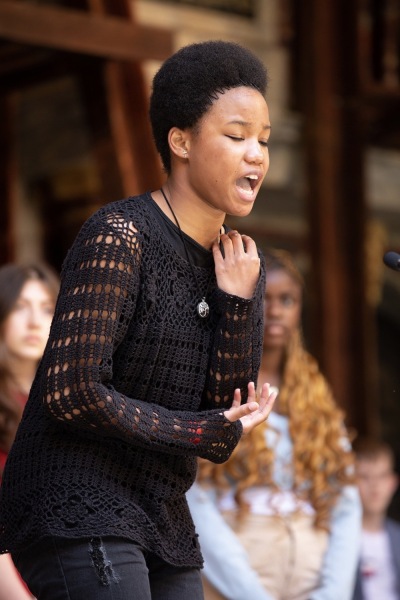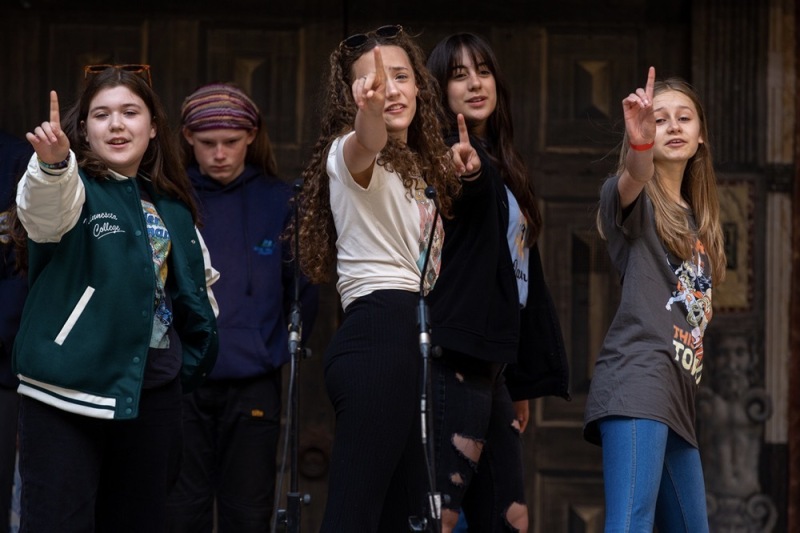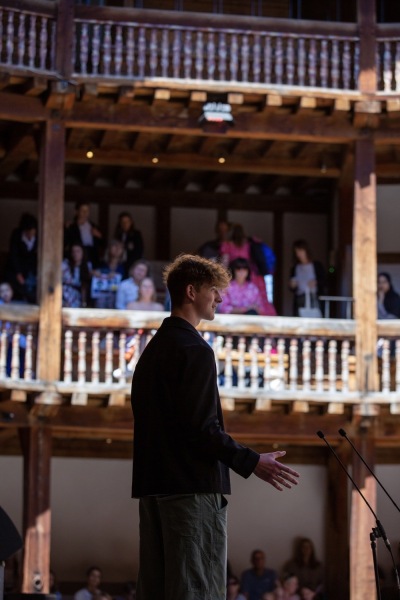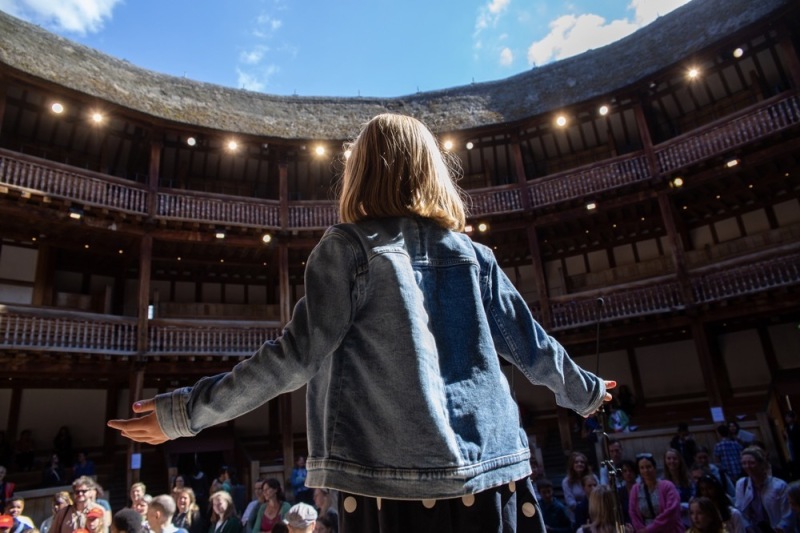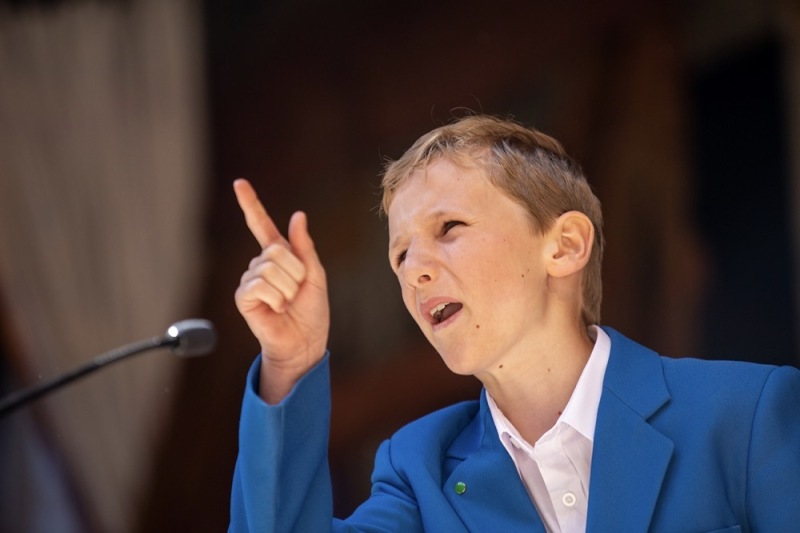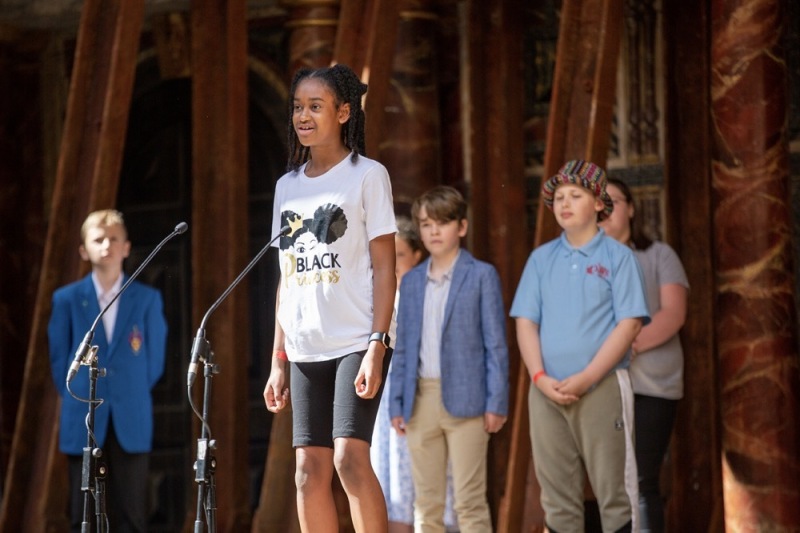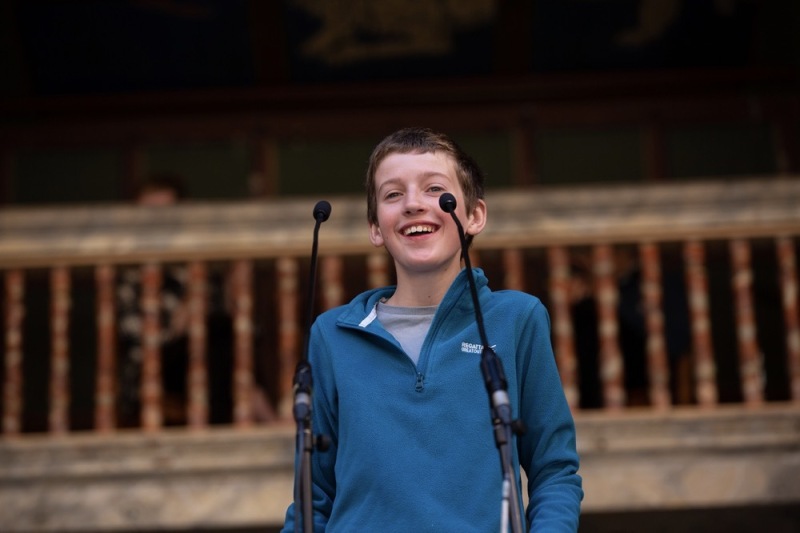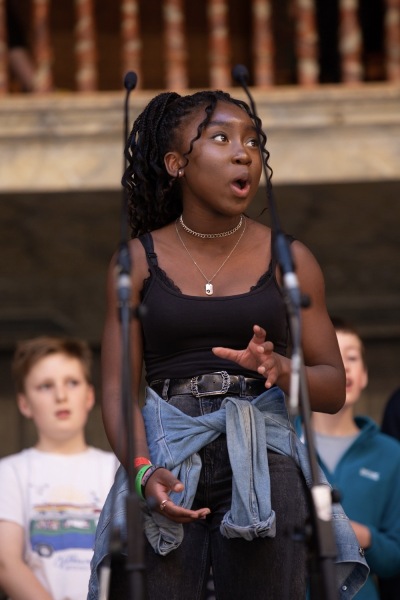Hilary Menos talks to Julie Blake, co-founder of Poetry By Heart, about the benefits of learning poetry by heart, the joys of poetry performance, and the Poetry By Heart national poetry speaking competition for schools and colleges in England, which is open for submissions now
The staff of The Friday Poem spent some time recently browsing the Poetry By Heart website. Speaking for myself, it was fabulous to find poems that I’d learned or read as a child and mostly forgotten – Tyger Tyger, Titania’s lullaby from A Midsummer Night’s Dream, Abou Ben Adhem, Hiawatha, (which my dad read to me), Macavity, (which my mum read to me), a raft of Edward Lear. It was like discovering a vast box of chocolates, or a room full of old friends I hadn’t seen for ages. It was lovely to renew acquaintance with them.
Providing an outlet for procrastination for distracted or bored poets isn’t the main aim of Poetry By Heart though – the organisation is targeted mostly at kids, and one of it’s main aims is to “encourage children to pay close attention to poems for their intrinsic pleasure”, says co-founder Julie Blake.
Blake founded Poetry By Heart in 2012 with former Poet Laureate Andrew Motion. At first the project faced a number of criticisms. Some people felt that learning a poem by heart was an outdated or posh practice, certainly in state schools. Why learn a poem, especially an old one, when you could read, listen, or write your own? Some even suggested that poetry itself was out of date. Wasn’t spoken word the thing now? Some doubted whether children would have the capacity to learn a poem by heart, especially since they have become habituated to finding what they needed when they need it on the web or social media. And behind those suspicions there was misery about the prospect of tedious rote learning. Would pupils want to do it, be prepared to do it?
But the poets Blake and Motion spoke to about the project told them a different story. Most said that to have a poem in the memory, learned by heart, was a treasure to draw on throughout life. Current Poet Laureate Simon Armitage said: “The poems we learn when we’re young stay with us for the rest of our lives. They become embedded in our thinking, and when we bring them to mind, or to our lips, they remind us who we are as people, and the things we believe in. They become personal and invaluable, and what’s more they are free gifts – there for the taking. We call it ‘learning by heart’, and I think such learning can only make our hearts bigger and stronger.” Alice Oswald observed that poems don’t just “go easily into the memory and stay there”; it works both ways – “the memory goes easily into a poem and grows there, perhaps infinitely.”
Learning poems by heart is all about developing confidence in an enjoyable, accessible and engaging way
The project went ahead, and has grown in size and success year on year. And the many benefits of learning a poem by heart have proved naysayers wrong, time and again. Blake says, “We have learned that by generating excitement about performing a poem, pupils get engaged in exploring verse to find their special one. As they learn their chosen poem by heart, they start to notice and explore its language, develop personal connections, and eventually start wanting to read more.”
Poetry is particularly manageable, says Blake, for children who can be put off by large chunks of text. By performing in pairs or groups to start with, pupils quickly overcome any initial nerves. The process has great benefits to their self-esteem. Poetry can provide a safe space when children feel that there are no right or wrong answers when discussing their responses to a poem. Learning poems by heart is all about developing confidence in an enjoyable, accessible and engaging way. She also talks about how certain types of digital interaction can encourage scattered modes of thinking and that learning a poem can help children to concentrate and focus better. As the parent of four, one of which is a teenager, I can’t help but agree – many of us could do with stiller, calmer minds.
So how does it work? At the root, says Blake, it’s all very simple. Choose a poem, learn it by heart, share it out loud, and listen to others doing the same. The poem selections on the website take the form of timeline anthologies graded for people of different ages as well as more specialised poetry showcases such as the Mix-it-up selection for children. The intention is that the selection of poems will be extensive enough for a young person to find a special poem that speaks to them without getting lost in infinite choice.
Blake says, “In our experience, primary-aged children can learn poems surprisingly quickly and easily, more so than their teachers. The act of learning a poem by heart still gives close time and attention to it. And while it’s sometimes a chore, it seems that committing a poem to memory is just that: nearly anyone can manage it. It takes time and perseverance. The reward is a special poem residing in memory, a companion, growing up with the person, and coming to mean differently as that young person matures, sometimes over the course of a life. Learning a poem by heart is also an act of close observation of a poem, whether this is done by writing it out, speaking it or hearing it spoken or by a combination of those methods. The sense of what the poem is becomes more vivid and immediate than by silent reading, so encouraging the pupils to start to notice its details of composition, such as the way the punctuation and line breaks hint at how it should be read.”
In our experience, most people are held by the eloquence of what they speak, the sense of occasion, and the attention and respect of their peers and the wider audience
The website is a fantastic resource for teachers, students and, well, anyone with an interest in poetry. But the other main thrust of the organisation is the competition, a national poetry speaking competition for schools and colleges in England, with a big celebration event at Shakespeare’s Globe Theatre in London for the winners. Blake is fulsome on this. “The options for crafting a poem for performance, including preparing to perform the poem in a pair or small group, seems to be the hardest part, and the most rewarding, allowing the child to interpret the poem as they think it means and works best. Many methods can be used, from the traditional stepped-back approach in which the poem is spoken clearly by a person standing still to more dramatic, musical and ensemble performance.
“And there is the coming together to share poems and respect for other people’s courage and efforts. Speaking a poem out loud can be a challenge for most people – there is an element of social risk – of drying up, fluffing the lines or losing control. This tends not to happen, and if it does, it elicits empathy and kindness. In our experience, most people are held by the eloquence of what they speak, the sense of occasion, and the attention and respect of their peers and the wider audience. And most derive an enduring sense of achievement for having shared out loud a poem meaningful to them, getting over their anxiety, and holding themselves in public space with confidence. That’s the thinking, and after ten years of Poetry By Heart we are confident it works.”
After ten years of Poetry By Heart we are confident it works
The Poetry By Heart competition is open now to all schools in England, primary and secondary. Children and young people are invited to choose poems they love, to learn them by heart and perform them in a school performance event. Teachers can then select students to enter the national round of the competition, submitting videos of their poem performances, with winners invited to take part in a celebration event at The Globe Theatre. The deadline for submitting for this year’s competition is 31st March — get your skates on!
Photos by Sam Strickland

